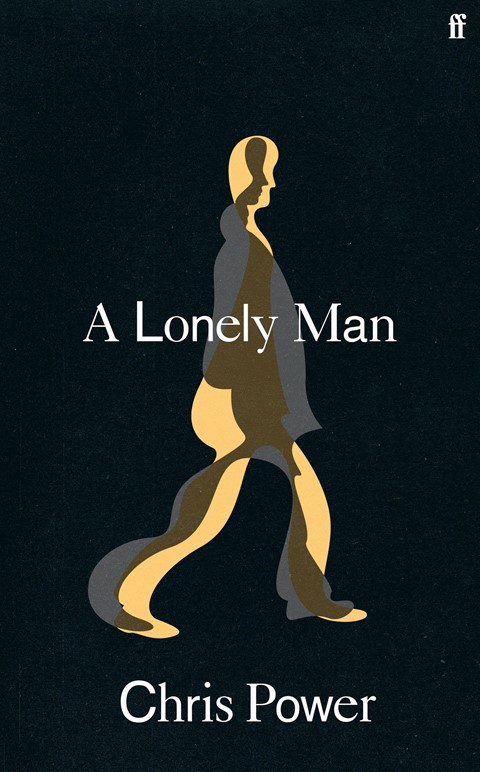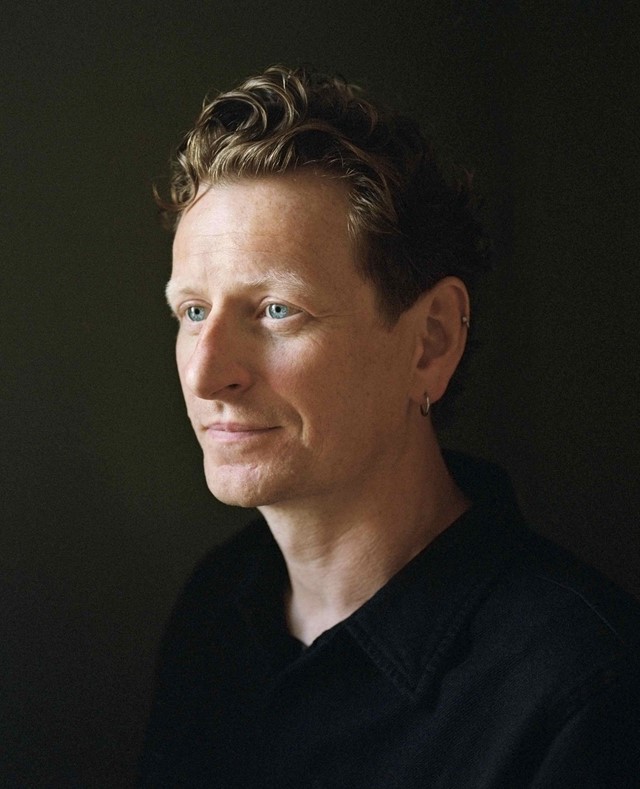The critic and author opens up about his creative process, and his gripping new novel A Lonely Man
As a writer, Chris Power has lived many lives. He entered the industry as an incisive literary critic, writing for broadsheets like the Guardian and the Times. He then shifted to advertising, taking work as a creative director and corporate copywriter. But something about these roles never felt quite right. “I was constantly feeling frustrated by the fact that I wasn’t writing fiction,” the Surrey-born writer says today. “I reached some sort of breaking point, where my unconscious was like, well no, you’ve really got to do this.”
In the years since this breaking point, Power has become one of Britain’s most esteemed short story writers. His 2018-published debut anthology Mothers was an acclaimed, cross-continental study of emotional longing, examining the psychic residue of lost loves and forgotten pasts. And this month, Power is moving beyond short stories to release his first full-length novel: a taut, tense thriller titled A Lonely Man.
The novel follows the story of two British men in Berlin, both writers, as they become entangled in an illusory world of death, deception and – potentially – Russian spies. It is an existential page-turner; an elegant thriller that delicately probes issues like suicide, shadow psychology, and the ethics of storytelling. In the days before its release, we caught up with Power to find out more about the book, and his writing process.

Dominique Sisley: When did your writing journey begin?
Chris Power: When I was a kid, it began with reading Lord of the Rings. It’s not a very hip answer. It was just the idea that you could create a world, not to control it, but to go to this other space and be in it. My two brothers were a bit older than me, so I was quite separate from them and played on my own a lot. I think that’s a classic writer tendency, to make up a lot of stuff on your own.
DS: How did that interest evolve as an adult? I know you worked as a broadsheet literary critic for a while, but when did you really start making a breakthrough with your own fiction?
CP: I really was someone who thought of themselves as a writer, much more than I was someone who actually did any writing for quite a long time (laughs). Like all of my friends thought of me as a writer because I banged on about it, but I was never actually working because I was just very ill-disciplined. I’d moved to London and was just enjoying partying and going to raves. I was not living a lifestyle that was very conducive to creating work. I tell myself now that I was gathering experiences that I could put to later use.
The breakthrough happened when I was working as a copywriter, doing freelance work for various agencies around the city. I’d got this long term contract and I was living with my wife in Shoreditch and the agency was down in Hammersmith, so I’d got into this routine of getting up at six, going across the city and getting to a coffee shop and writing for two hours before starting work. And that’s really where I started writing. I’d been writing across the years but very fitfully, just when inspiration struck. But I actually treated this new routine like a job: I was doing it every day, including on weekends. Even if I was feeling crappy, or if I was feeling completely uninspired, I would do it nonetheless. I had good days, I had terrible days but I just kept on doing it.
“I was just very ill-disciplined. I’d moved to London and was just enjoying partying and going to raves” – Chris Power
DS: What was it that inspired such a regimented lifestyle change? Had you reached some kind of breaking point?
CP: I think it surprised a lot of people who’d known me for a while. I think partly it was because I had been living this fantasy life as a writer, and I was constantly feeling frustrated by the fact that I wasn’t doing it. I suppose I reached some sort of breaking point, where my unconscious was like, well no, you’ve really got to do this.
I also think I’ve got an addictive personality, which through my twenties and early thirties was not doing me any favours. But sometimes you get addicted to stuff that’s good for you and this was one of those things, I think. I became very attached to the routine and it became very important to me. The good thing about that really early morning period is that you’re a blank slate, you’re not really fragmented in the way you are if you try and start writing after you’ve spent a couple of hours on Twitter, or if you’ve been doing some stuff for your job, if your head’s been filling up with other things.
DS: A Lonely Man probes a lot of different issues, like identity, masculinity, suicide, even the seediness of the Russian spy network. But a really central theme of this novel is the ethics of art, and how ruthless artists can be when it comes to wielding their artistic license. Writers, in particular, have a tendency to claim other people’s stories and experiences as their own. Is that something you think about a lot?
CP: I thought a lot about your rights to write about something when it’s not just a painful memory for you, but also an even more painful memory for other people, and how that can affect them. The strangeness of seeing something real created in fiction, and it’s mostly as it was, but not entirely as it was. It’s quite uncomfortable, I suppose ... When you’re writing, things become abstracted. I think maybe that’s related to the callousness of writing as well because you stop thinking about any of these things as real events. You’re not trying to honour the truth, you’re trying to make a scene as effective as it can be, or as emotional as it can be. It becomes a question of logic, aesthetics and style rather than a question of ethics and emotion.
“On social media, you see someone else’s experience and you universalise it, and you see your own experience and you compartmentalise it down to just you” – Chris Power
DS: The writers in this book don’t exactly come across that well – you’re quite playfully unforgiving with them. There’s an egotism to Robert, the protagonist, and he comes across as quite spineless and comical at points. Do you think that’s how all artists are, really?
CP: I probably shouldn’t generalise that much, but writers are quite a tricky mixture of egotism and enormous self-doubt. You’ve got to have self-belief, so all writers do think their work is good (very unfortunately in some cases). But at the same time, you’re constantly plagued by doubt. For the first year of writing this I was working away, having good days and bad days, and then every so often going, “Oh my god, what if it’s shit? What if the whole thing is just shit?!” It’s a bizarre thing, and yet you deceive yourself as well. I remember getting to the end of drafts thinking, this is in a pretty good place! And then six months later, looking back at those drafts and just being absolutely appalled. That seems to happen repeatedly.
Are writers more envious and small-minded than other professions? I don’t know. I think there’s an element of never being happy as a writer. When you’re starting out, you’re hoping you’ll get an agent or you’ll get published, and then you get an agent and you get a book deal, and notice a person who got a much bigger book deal ... whatever it is, there’s always something you’re chasing, unless you’re like, Stephen King or something. I suppose that’s because you’ve got to be ambitious to have the dogged determination to write a novel. It’s probably one of the longer forms of work you can do without receiving any feedback at all, because it’s hard to get it to stage before any feedback is of any use. You’re just working on something alone, without a contract or any guarantee that anything will happen. You’ve got to keep working at it, and that is kind of crazy, isn’t it?
DS: Do you think that envy and small-mindedness has always existed among artists? Or is it made worse by social media?
CP: I think it’s probably always been like that. You probably hated fewer people before social media, because you weren't [exposed to as many of them]. But however many writers there are on social media, while quite a few of them will be having a good day, most of them will be having terrible days. Someone would have written 12 words, and they were all the wrong words and they’re feeling desperate. But on social media, you see someone else’s experience and you universalise it, and you see your own experience and you compartmentalise it down to just you. Like, why is this only happening to me? But I think that’s just human nature. I respect – but also slightly distrust – writers who aren’t on social media at all. I think they’ve got it right, but I just don’t know how they’ve got it right.
Chris Power’s A Lonely Man is published by Faber.
